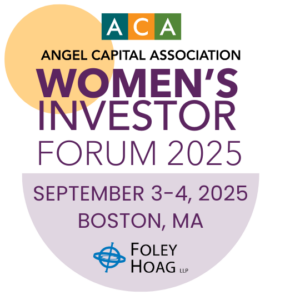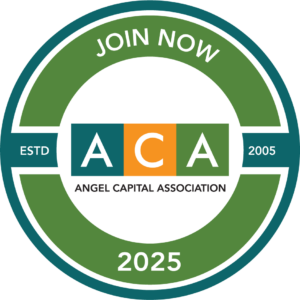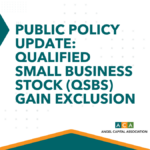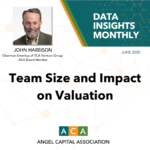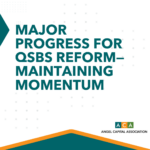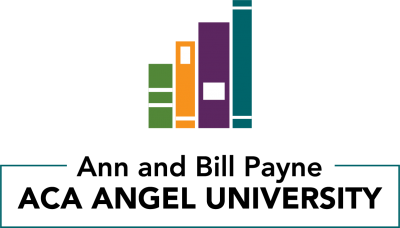Angel Insights Blog

Thursday, March 17, 2016
Calling All Angels – Be Part of “The American Angel” Campaign
By: Marianne Hudson, ACA Executive Director
Are you an accredited angel investor? We need ten minutes of your time to make a big difference for startup investing. Please take this confidential survey to help us understand who angel investors are, how they became angels, and what factors influence their investing activity.
Today ACA and Wharton Entrepreneurship announced a partnership to complete the first-ever comprehensive demographic study of angel investors across the U.S. We believe this study will help identify characteristics of angel investors that have never before been understood. It is critical for entrepreneurs, economic development entities, private market makers, regulators and legislators to understand who angel investors are, in order to drive effective policies to ensure a robust angel investing marketplace and for startups to better access equity capital.
If you think about it, precious little is known about the 200,000+ American angels who wield immense economic influence in the U.S. startup economy. We believe angels invested an estimated $24B in more than 73,000 startup deals in 2014, fueling the economic engine of our country. We also have some interesting data from the recent 2015 Halo Report, the importance of angels and their impact on the economy is greater than ever. Two important indicators showed dramatic increases from the prior year: median deal size of angel investments rose to $850,000 from $510,000, while median pre-money valuation increased by 53 percent to $4.6M.
But what does anyone really know about the people behind these investments? The media seems to say that angels are only in Silicon Valley, Boston and New York, and they only invest in companies in those communities. Is that true? I think there will be many surprises when there is real data from thousands of angels and we’ll also learn the answer to questions like: What is the average size check individual angels write? And how did they first get involved in angel investing? How much does geography and industry experience play into their funding decisions?
I’m excited to work with Wharton Entrepreneurship, which will help make The American Angel be an important and high quality study. Laura Huang, assistant professor of management at the Wharton School, University of Pennsylvania is leading the effort. Her team will help us develop a profile of angel investors that will illuminate age, gender and ethnicity; and help pinpoint commonalities such as education or career path, as well as trends regarding how they identify fundable early-stage companies.
Angels who take The American Angel survey will get the survey results early and will also be eligible for drawings for complimentary tickets to ACA-sponsored angel education events (including the 2016 ACA Summit). Another reason to participate is that it will give us the kind of data we need to talk with Congress and the SEC to ensure better policies for startup investing. It might help in the debate to keep the accredited investor definition as it is, for example.
Please take ten minutes to do the survey. It is confidential and doesn’t get into your specific deals. And share it with your angel friends too. The bigger the dataset, the better!
Details about The American Angel campaign are on this website. We particularly want to thank Rev1 Ventures, which raised funds for the John Huston Fund for Angel Professionalism, which is financing the project. Many ACA members also contributed to the fund, so thank you as well.



Tags: Trends Accredited Investors

